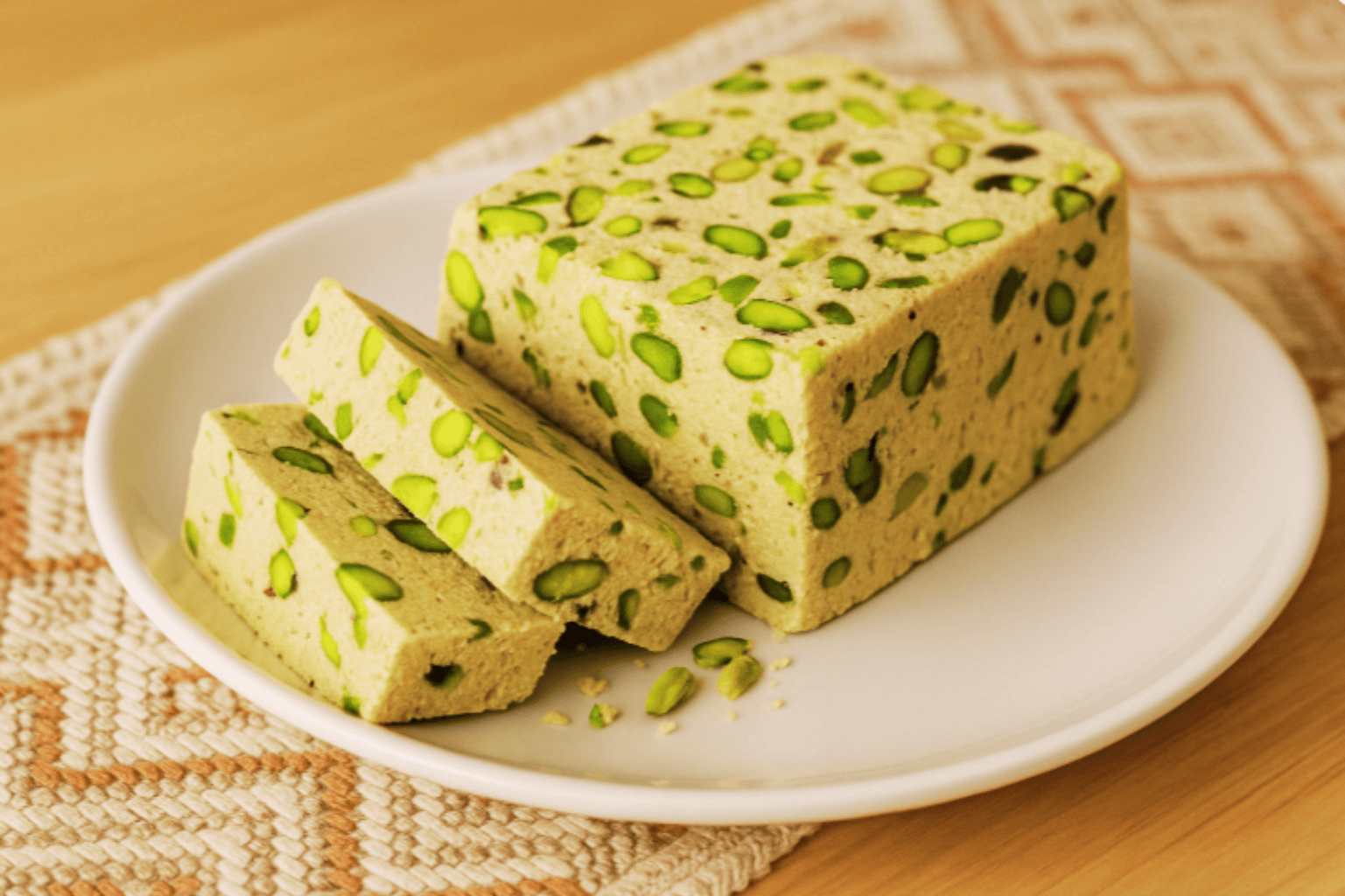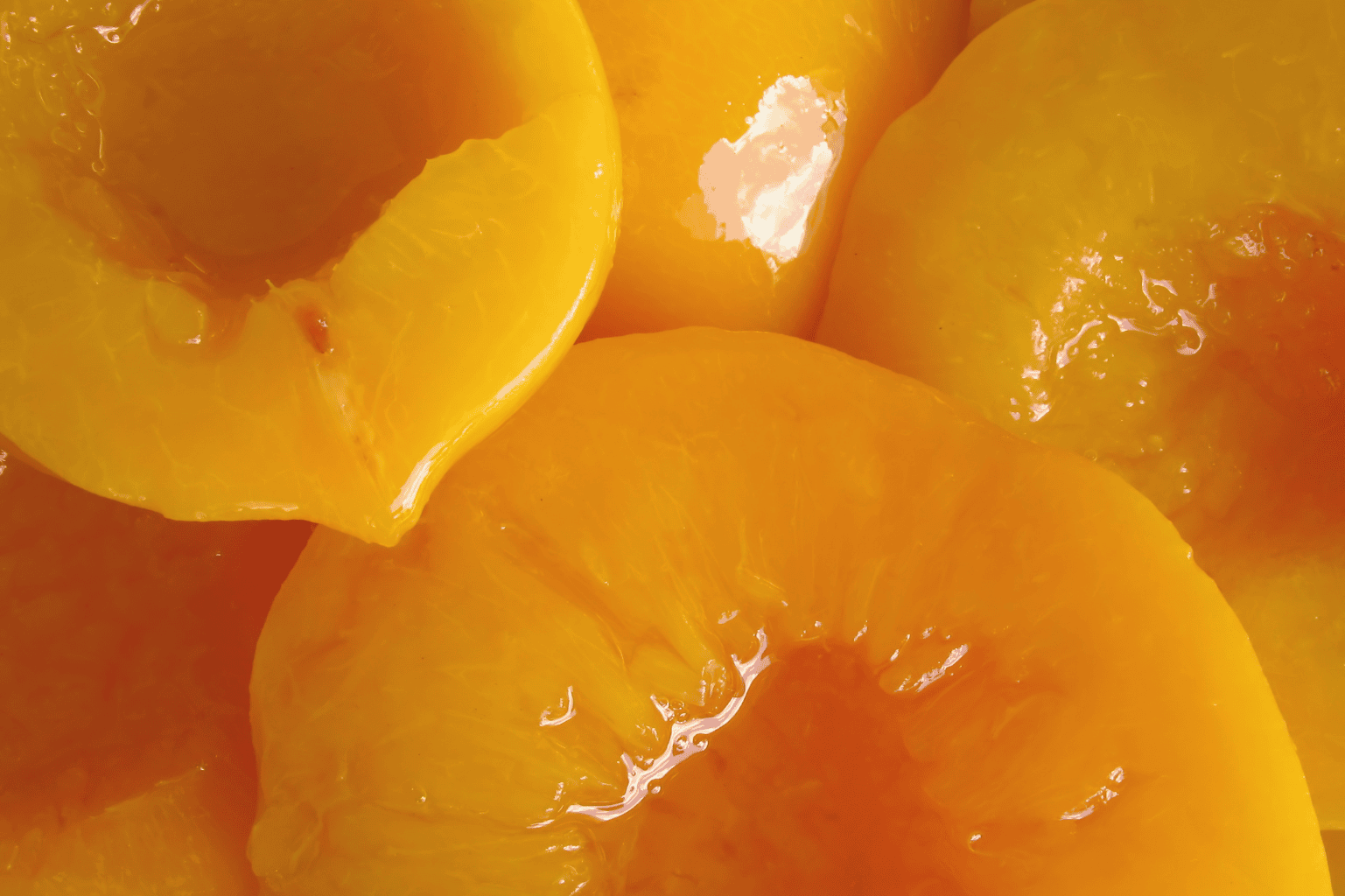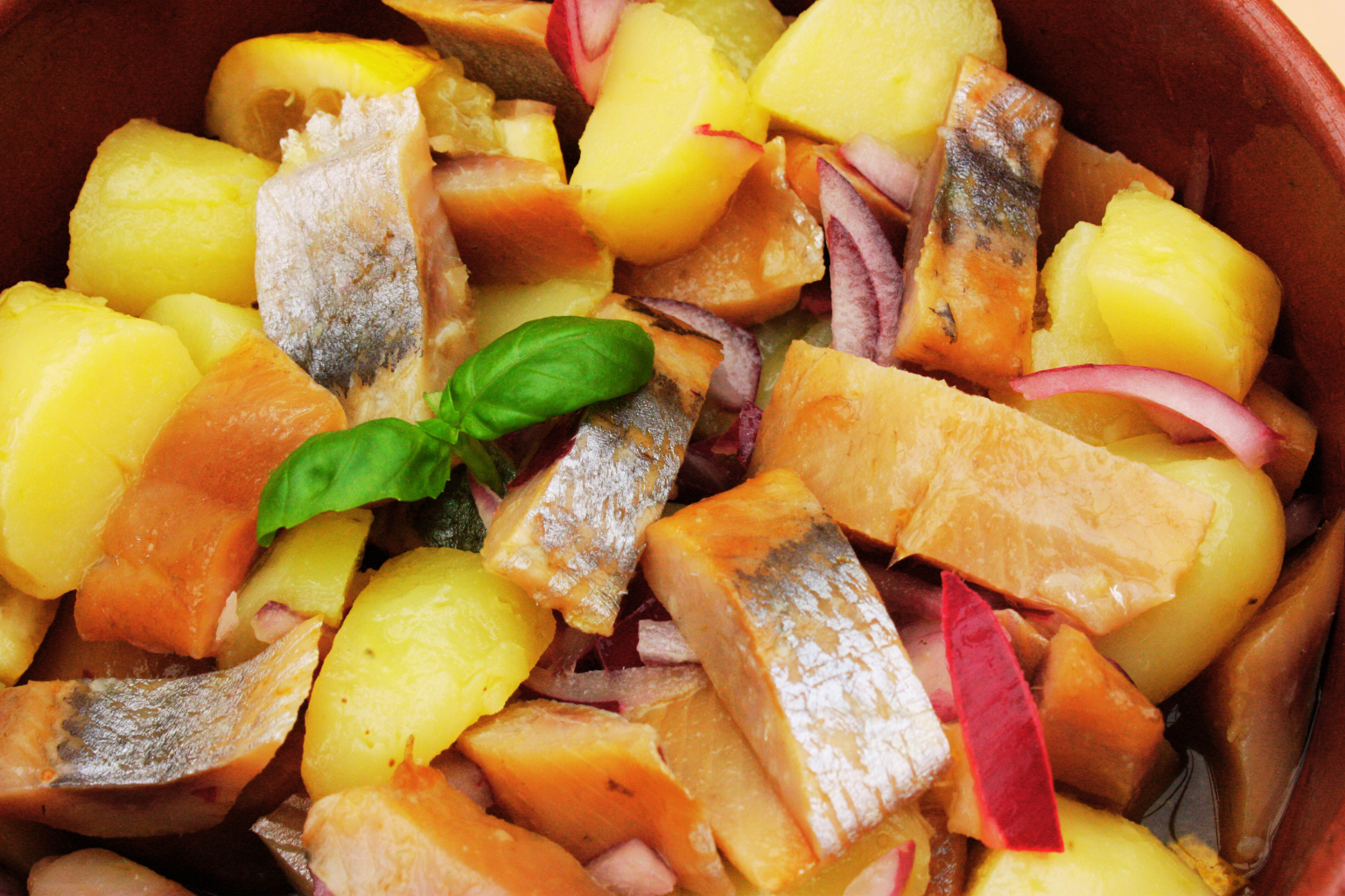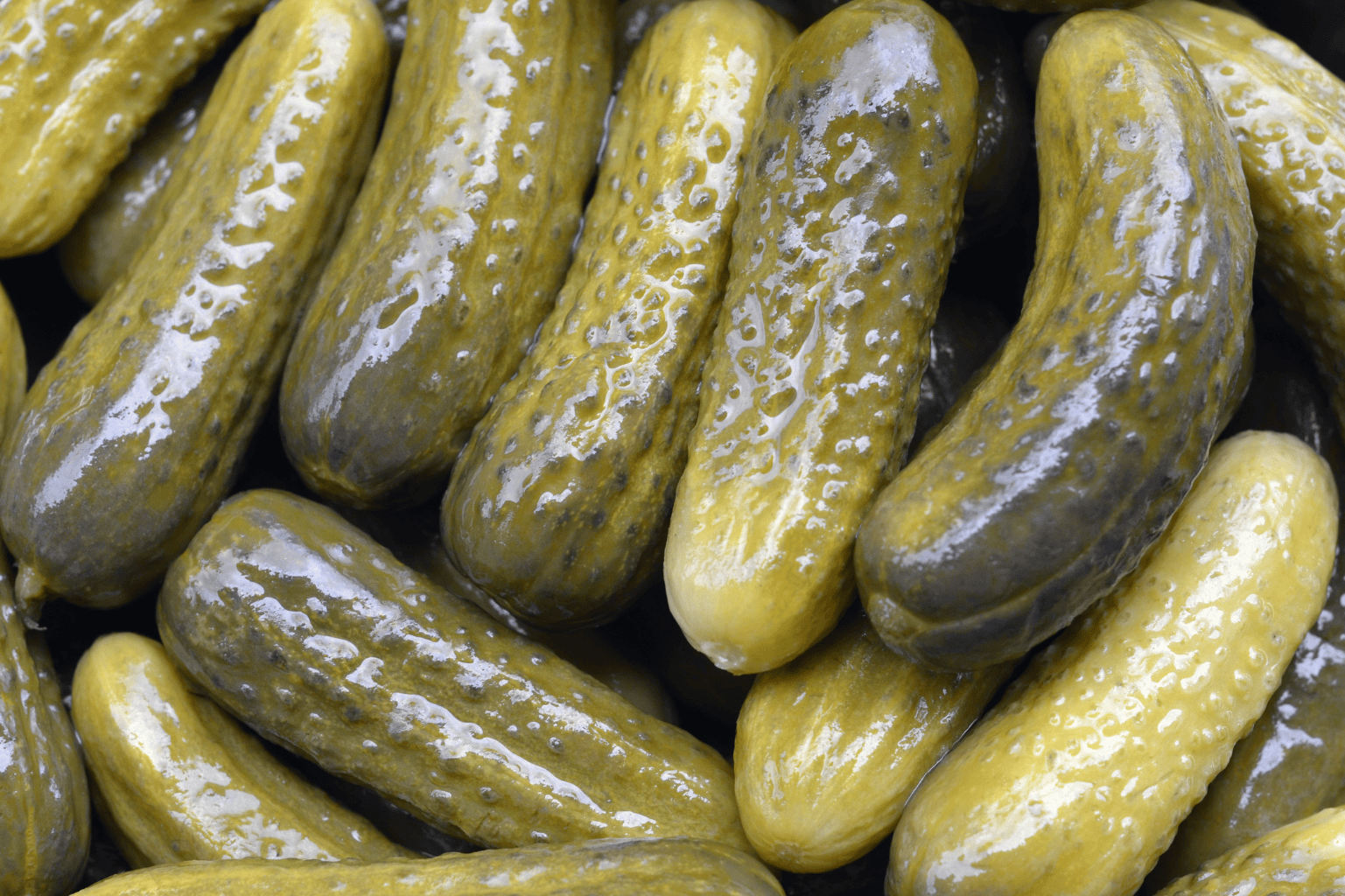Halal DELi cuts

Pastrami
Pastrami from Egypt is renowned for its tender texture and rich, smoky flavor. It’s a favorite for sandwiches, offering a savory experience, and is crafted from high-quality beef.
Pastrami from Egypt is renowned for its tender texture and rich, smoky flavor. It’s a favorite for sandwiches, offering a savory experience, and is crafted from high-quality beef.
Salami
Egyptian salami boasts a blend of spices and flavors, offering a perfect balance of savory and slightly spicy. It’s made from premium meats and is ideal for slicing on sandwiches or serving on platters.
Egyptian salami boasts a blend of spices and flavors, offering a perfect balance of savory and slightly spicy. It’s made from premium meats and is ideal for slicing on sandwiches or serving on platters.
Pepperoni
Egyptian pepperoni is known for its bold, spicy flavor and smooth texture. It’s made from carefully selected meats and seasoned to perfection, making it a popular choice for pizzas and sandwiches.
Egyptian pepperoni is known for its bold, spicy flavor and smooth texture. It’s made from carefully selected meats and seasoned to perfection, making it a popular choice for pizzas and sandwiches.
Cold Cut Meats
Egypt’s cold cuts offer a wide variety of premium deli meats, including bologna, mortadella, and more. They are prepared with top-quality meats, spices, and slow curing processes, ensuring fresh, flavorful slices every time.
Egypt’s cold cuts offer a wide variety of premium deli meats, including bologna, mortadella, and more. They are prepared with top-quality meats, spices, and slow curing processes, ensuring fresh, flavorful slices every time.
Chicken
Egyptian chicken deli meats are crafted with care, offering a delicious, tender alternative to traditional cured meats. Their mild flavor and high-quality preparation make them a favorite in wraps, sandwiches, and salads.
Egyptian chicken deli meats are crafted with care, offering a delicious, tender alternative to traditional cured meats. Their mild flavor and high-quality preparation make them a favorite in wraps, sandwiches, and salads.
Turkey
Egypt’s turkey deli meats stand out for their lean quality and rich, savory taste. Perfect for sandwiches, salads, or as a protein snack, they offer a healthier alternative to more traditional deli meats.
Egypt’s turkey deli meats stand out for their lean quality and rich, savory taste. Perfect for sandwiches, salads, or as a protein snack, they offer a healthier alternative to more traditional deli meats.
Olives

Green Olives
Egyptian green olives are known for their firm texture and slightly bitter taste. They are often picked before fully ripe and cured using various methods like brining and dry curing. Perfect for snacking, salads, or as an appetizer.
Egyptian green olives are known for their firm texture and slightly bitter taste. They are often picked before fully ripe and cured using various methods like brining and dry curing. Perfect for snacking, salads, or as an appetizer.
Black Olives
Black olives from Egypt are soft, juicy, and naturally sweeter than green olives. They are harvested when fully ripe and are often brined or cured for added flavor. A versatile addition to dishes like pasta, pizza, and tapenade.
Black olives from Egypt are soft, juicy, and naturally sweeter than green olives. They are harvested when fully ripe and are often brined or cured for added flavor. A versatile addition to dishes like pasta, pizza, and tapenade.
Kalamata Olives
Known for their almond shape and rich flavor, Kalamata olives are one of Egypt’s prized varieties. Their dark purple hue and distinct briny taste make them a perfect choice for Mediterranean dishes, salads, and tapenade.
Known for their almond shape and rich flavor, Kalamata olives are one of Egypt’s prized varieties. Their dark purple hue and distinct briny taste make them a perfect choice for Mediterranean dishes, salads, and tapenade.
Chili Olives
For those who enjoy a spicy kick, Egyptian chili olives are marinated with hot peppers and spices, making them an exciting and flavorful snack or addition to salads and antipasto platters.
For those who enjoy a spicy kick, Egyptian chili olives are marinated with hot peppers and spices, making them an exciting and flavorful snack or addition to salads and antipasto platters.
Olive Oil
Egyptian olive oil is a high-quality, extra virgin oil known for its smooth texture and subtle fruity flavor. Ideal for drizzling over salads, grilling, or for use in Mediterranean cooking.
Egyptian olive oil is a high-quality, extra virgin oil known for its smooth texture and subtle fruity flavor. Ideal for drizzling over salads, grilling, or for use in Mediterranean cooking.
Stuffed Olives
Egyptian stuffed olives come with a variety of fillings, such as garlic, almonds, or peppers. They are marinated for an extra burst of flavor and are a popular choice for appetizers or antipastos.
Egyptian stuffed olives come with a variety of fillings, such as garlic, almonds, or peppers. They are marinated for an extra burst of flavor and are a popular choice for appetizers or antipastos.
Olive Oil

Olive Oil
Egyptian olive oil is known for its high quality, smooth texture, and distinctive flavor profiles. It is a key ingredient in Mediterranean cooking and is gaining recognition in international markets for both culinary and cosmetic uses.
Egyptian olive oil is known for its high quality, smooth texture, and distinctive flavor profiles. It is a key ingredient in Mediterranean cooking and is gaining recognition in international markets for both culinary and cosmetic uses.
Varieties of Egyptian Olive Oil
Extra Virgin Olive Oil: Made from the first cold-pressing of the olives, it is unrefined and rich in flavor, perfect for dressings, dips, and drizzling over dishes.
Pure Olive Oil: Refined but retains some of the original flavor, ideal for cooking, frying, and sautéing at higher temperatures.
Organic Olive Oil: Produced from olives grown without pesticides or synthetic fertilizers, it's favored by health-conscious consumers.
Extra Virgin Olive Oil: Made from the first cold-pressing of the olives, it is unrefined and rich in flavor, perfect for dressings, dips, and drizzling over dishes.
Pure Olive Oil: Refined but retains some of the original flavor, ideal for cooking, frying, and sautéing at higher temperatures.
Organic Olive Oil: Produced from olives grown without pesticides or synthetic fertilizers, it's favored by health-conscious consumers.
Why Egyptian Olive Oil Stands Out
Quality Control: Egyptian olive oil follows international standards, including ISO and HACCP certifications, ensuring high global quality.
Flavor Profile: Characterized by a rich, robust taste with subtle bitterness and a peppery finish, it’s highly valued in Mediterranean cuisine.
Sustainability: Producers use eco-friendly farming practices to protect the environment and ensure sustainability.
Competitive Edge
Egyptian olive oil offers excellent quality at a competitive price, with a consistent supply of high-quality olive oil year-round.
Egyptian olive oil offers excellent quality at a competitive price, with a consistent supply of high-quality olive oil year-round.
Flaxseed Oil

Flaxseed Oil
Egyptian flaxseed oil is extracted from high-quality flaxseeds known for their rich content of omega-3 fatty acids and lignans. The oil is cold-pressed to preserve its nutritional value, offering a light, clear appearance and a mild, nutty flavor. It has been used traditionally in Egyptian households and has long been a part of the Egyptian diet for its nutritional benefits and health-promoting properties.
Egyptian flaxseed oil is extracted from high-quality flaxseeds known for their rich content of omega-3 fatty acids and lignans. The oil is cold-pressed to preserve its nutritional value, offering a light, clear appearance and a mild, nutty flavor. It has been used traditionally in Egyptian households and has long been a part of the Egyptian diet for its nutritional benefits and health-promoting properties.
Historical Significance
Flax has been cultivated in Egypt for thousands of years, dating back to ancient Egyptian civilization. It was prized not only for its seeds, which were used to extract oil, but also for its fibers. The ancient Egyptians used flax in various forms, including in the production of linen, a fabric highly valued for its strength, durability, and comfort. The use of flaxseed oil, specifically, is believed to have been part of their tradition for promoting health and wellness.
Flax has been cultivated in Egypt for thousands of years, dating back to ancient Egyptian civilization. It was prized not only for its seeds, which were used to extract oil, but also for its fibers. The ancient Egyptians used flax in various forms, including in the production of linen, a fabric highly valued for its strength, durability, and comfort. The use of flaxseed oil, specifically, is believed to have been part of their tradition for promoting health and wellness.
Modern Use
Today, Egyptian flaxseed oil continues to be cherished for its health benefits. It is known for its high levels of alpha-linolenic acid (ALA), an omega-3 fatty acid that supports heart health and has anti-inflammatory properties. It is used in cooking, as a salad dressing, and also in cosmetics for its moisturizing and skin-nourishing properties.
Today, Egyptian flaxseed oil continues to be cherished for its health benefits. It is known for its high levels of alpha-linolenic acid (ALA), an omega-3 fatty acid that supports heart health and has anti-inflammatory properties. It is used in cooking, as a salad dressing, and also in cosmetics for its moisturizing and skin-nourishing properties.
Honey

Sidr Honey
Sidr honey is known for its distinct flavor, rich color, and smooth texture. It is produced by bees that pollinate the Sidr tree, which is native to Egypt and the Arabian Peninsula. This honey is prized for its medicinal properties and high antioxidant content.
Sidr honey is known for its distinct flavor, rich color, and smooth texture. It is produced by bees that pollinate the Sidr tree, which is native to Egypt and the Arabian Peninsula. This honey is prized for its medicinal properties and high antioxidant content.
Acacia Honey
Acacia honey is light, clear, and mild, with a delicate floral flavor. It is highly valued for its purity and is a popular choice for use in teas and desserts. Acacia honey from Egypt is harvested from the blossoms of the black locust tree and is often considered one of the best honey varieties.
Acacia honey is light, clear, and mild, with a delicate floral flavor. It is highly valued for its purity and is a popular choice for use in teas and desserts. Acacia honey from Egypt is harvested from the blossoms of the black locust tree and is often considered one of the best honey varieties.
Wildflower Honey
Wildflower honey is made from the nectar of various wildflowers found in Egypt’s rural areas. Its flavor can vary depending on the flowers it comes from, but it typically offers a sweet, slightly tangy taste. This honey is rich in nutrients and antioxidants.
Wildflower honey is made from the nectar of various wildflowers found in Egypt’s rural areas. Its flavor can vary depending on the flowers it comes from, but it typically offers a sweet, slightly tangy taste. This honey is rich in nutrients and antioxidants.
Citrus Honey
Citrus honey is produced from the blossoms of citrus trees, such as oranges and lemons, in Egypt. It has a mild, slightly citrusy flavor, making it a popular choice for adding to drinks or baked goods. It’s also known for its light color and smooth texture.
Citrus honey is produced from the blossoms of citrus trees, such as oranges and lemons, in Egypt. It has a mild, slightly citrusy flavor, making it a popular choice for adding to drinks or baked goods. It’s also known for its light color and smooth texture.
Honeydew Honey
Honeydew honey is made by bees that collect nectar from plant sap instead of flower nectar. It has a dark, rich color and a complex flavor profile, often described as earthy and less sweet than traditional honey. Honeydew honey is known for its higher mineral content and antibacterial properties.
Honeydew honey is made by bees that collect nectar from plant sap instead of flower nectar. It has a dark, rich color and a complex flavor profile, often described as earthy and less sweet than traditional honey. Honeydew honey is known for its higher mineral content and antibacterial properties.
Molasses

Egyptian Molasses
Egyptian molasses, made from pure sugar cane, is recognized for its thick consistency and rich, sweet flavor. The molasses is produced using traditional methods, preserving its deep, robust taste that is cherished in Egyptian cuisine and culture. It is a staple ingredient used in a wide range of dishes, from savory stews to sweet desserts.
Egyptian molasses, made from pure sugar cane, is recognized for its thick consistency and rich, sweet flavor. The molasses is produced using traditional methods, preserving its deep, robust taste that is cherished in Egyptian cuisine and culture. It is a staple ingredient used in a wide range of dishes, from savory stews to sweet desserts.
Cultural Significance
Molasses has deep cultural ties to Egypt, where it has been used for centuries in local cooking. It plays a key role in traditional Egyptian sweets, and a traditional dip for the famous Egyptian pies "Feteer Mesheltet". Its use reflects Egypt’s agricultural history and the importance of sugarcane cultivation in the country, especially in Upper Egypt, where high temperatures are necessary for high quality sugarcane.
Molasses has deep cultural ties to Egypt, where it has been used for centuries in local cooking. It plays a key role in traditional Egyptian sweets, and a traditional dip for the famous Egyptian pies "Feteer Mesheltet". Its use reflects Egypt’s agricultural history and the importance of sugarcane cultivation in the country, especially in Upper Egypt, where high temperatures are necessary for high quality sugarcane.
Quality and Competency
Egyptian molasses is considered one of the finest worldwide due to the use of the highest quality sugar cane and the traditional methods of extraction. The molasses is free from additives and preservatives, retaining all its natural goodness. With its premium quality, it is highly sought after in international markets for both culinary and industrial purposes.
Egyptian molasses is considered one of the finest worldwide due to the use of the highest quality sugar cane and the traditional methods of extraction. The molasses is free from additives and preservatives, retaining all its natural goodness. With its premium quality, it is highly sought after in international markets for both culinary and industrial purposes.
Tahini

Tahini
Egyptian tahini, made from freshly ground sesame seeds, is known for its rich, creamy texture and earthy flavor. It is an integral part of Egyptian cuisine, used in various dishes, dips, and spreads. The smooth, nutty flavor of tahini is cherished for its versatility in both savory and sweet recipes. Egyptian tahini is known for its high quality, with sesame seeds sourced from the fertile lands of the Nile Delta, known for producing seeds with rich oil content.
Egyptian tahini, made from freshly ground sesame seeds, is known for its rich, creamy texture and earthy flavor. It is an integral part of Egyptian cuisine, used in various dishes, dips, and spreads. The smooth, nutty flavor of tahini is cherished for its versatility in both savory and sweet recipes. Egyptian tahini is known for its high quality, with sesame seeds sourced from the fertile lands of the Nile Delta, known for producing seeds with rich oil content.
Historical Significance
Tahini has been a part of Egyptian culinary traditions for centuries, with evidence of sesame seed cultivation in the region dating back to ancient Egypt. The Egyptians recognized sesame's health benefits, and tahini became a staple in their diet. It was often consumed as a high-protein food and used in both sweet and savory dishes.
Tahini has been a part of Egyptian culinary traditions for centuries, with evidence of sesame seed cultivation in the region dating back to ancient Egypt. The Egyptians recognized sesame's health benefits, and tahini became a staple in their diet. It was often consumed as a high-protein food and used in both sweet and savory dishes.
Egyptian Nutella
A popular and beloved combination in Egypt is tahini paired with Egyptian molasses, a sweet syrup made from sugar cane. This combination is often referred to as the "Egyptian Nutella." The rich, nutty flavor of tahini combined with the sweet, deep taste of molasses creates a delicious spread enjoyed by many in Egypt and abroad. This simple yet flavorful treat is commonly used on bread, in desserts, or as a dip.
A popular and beloved combination in Egypt is tahini paired with Egyptian molasses, a sweet syrup made from sugar cane. This combination is often referred to as the "Egyptian Nutella." The rich, nutty flavor of tahini combined with the sweet, deep taste of molasses creates a delicious spread enjoyed by many in Egypt and abroad. This simple yet flavorful treat is commonly used on bread, in desserts, or as a dip.
Halva

Halva with Pistachio
Egyptian Halva, made from sesame seeds and enriched with pistachios, offers a unique blend of nutty flavor and smooth texture. Also available plain, with hazelnuts, walnuts, and almonds. Known for its rich, slightly sweet taste and satisfying crunch, this dessert is a traditional favorite in Egypt. Its popularity has spread across the globe, especially in the Middle East, where it’s enjoyed as a snack or dessert. Egyptian Halva stands out for its high-quality ingredients, sourced from the fertile lands of Egypt.
Egyptian Halva, made from sesame seeds and enriched with pistachios, offers a unique blend of nutty flavor and smooth texture. Also available plain, with hazelnuts, walnuts, and almonds. Known for its rich, slightly sweet taste and satisfying crunch, this dessert is a traditional favorite in Egypt. Its popularity has spread across the globe, especially in the Middle East, where it’s enjoyed as a snack or dessert. Egyptian Halva stands out for its high-quality ingredients, sourced from the fertile lands of Egypt.
Nutritional Facts
Halva is packed with essential nutrients, offering a good source of protein, healthy fats, and dietary fiber. The addition of pistachios adds extra protein and healthy fats, making it an energy-boosting treat. Halva also contains a variety of vitamins and minerals, including vitamin E, magnesium, and iron. Though a sweet indulgence, it's a great source of sustainable energy.
Halva is packed with essential nutrients, offering a good source of protein, healthy fats, and dietary fiber. The addition of pistachios adds extra protein and healthy fats, making it an energy-boosting treat. Halva also contains a variety of vitamins and minerals, including vitamin E, magnesium, and iron. Though a sweet indulgence, it's a great source of sustainable energy.
Perfect Pairing
Egyptian Halva is often paired with strong coffee or tea and is commonly enjoyed as a snack during social gatherings. The rich, nutty flavor of the halva complements the boldness of the beverages. It’s also commonly used in baking, as a topping for desserts, or as a filling for pastries, bringing a delightful flavor to any dish.
Egyptian Halva is often paired with strong coffee or tea and is commonly enjoyed as a snack during social gatherings. The rich, nutty flavor of the halva complements the boldness of the beverages. It’s also commonly used in baking, as a topping for desserts, or as a filling for pastries, bringing a delightful flavor to any dish.
Jams & marmalades

Strawberry Jam
Egyptian strawberry jam is made from ripe, high-quality strawberries that provide a rich and natural flavor. The strawberries are grown in the fertile lands of the Nile Delta and are harvested at peak ripeness, making the jam perfect for breakfast spreads or desserts.
Egyptian strawberry jam is made from ripe, high-quality strawberries that provide a rich and natural flavor. The strawberries are grown in the fertile lands of the Nile Delta and are harvested at peak ripeness, making the jam perfect for breakfast spreads or desserts.
Apricot Jam
Known for its smooth texture and slightly tangy taste, apricot jam is a staple in Egyptian kitchens. Made from sun-ripened apricots, it is popular for its vibrant orange color and natural sweetness, often used as a topping for bread or pastries.
Known for its smooth texture and slightly tangy taste, apricot jam is a staple in Egyptian kitchens. Made from sun-ripened apricots, it is popular for its vibrant orange color and natural sweetness, often used as a topping for bread or pastries.
Seville Orange Marmalade
Seville oranges are famous for their slightly bitter and zesty flavor. The marmalade made from these oranges is a classic and a favorite for those who prefer a sharper, tangy taste with the added sweetness of the jam base.
Seville oranges are famous for their slightly bitter and zesty flavor. The marmalade made from these oranges is a classic and a favorite for those who prefer a sharper, tangy taste with the added sweetness of the jam base.
Rose Jam
Rose jam, made from the petals of Egypt's famed Damask roses, is delicately fragrant and slightly sweet. This traditional jam is often used in Middle Eastern desserts, adding an exotic and floral flavor to pastries and sweets.
Rose jam, made from the petals of Egypt's famed Damask roses, is delicately fragrant and slightly sweet. This traditional jam is often used in Middle Eastern desserts, adding an exotic and floral flavor to pastries and sweets.
Figs Jam
Figs are widely grown in Egypt, and fig jam is a delicious treat made from ripe figs with a rich, sweet flavor. It’s often enjoyed with cheese, bread, or as a topping for pancakes, adding a unique sweetness to any dish.
Figs are widely grown in Egypt, and fig jam is a delicious treat made from ripe figs with a rich, sweet flavor. It’s often enjoyed with cheese, bread, or as a topping for pancakes, adding a unique sweetness to any dish.







